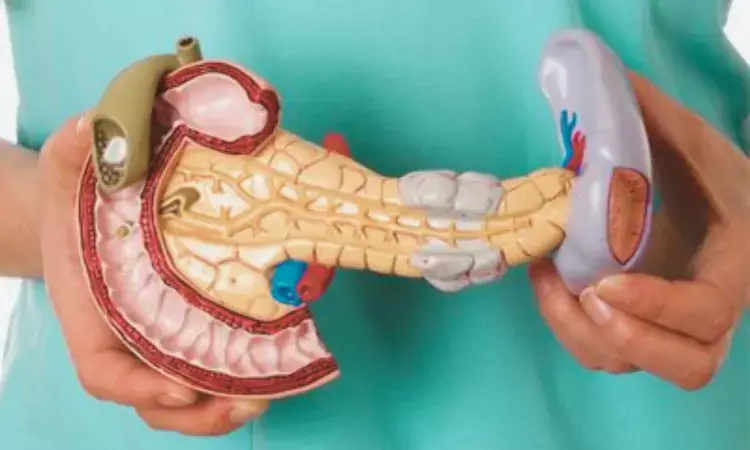- Home
- Medical news & Guidelines
- Anesthesiology
- Cardiology and CTVS
- Critical Care
- Dentistry
- Dermatology
- Diabetes and Endocrinology
- ENT
- Gastroenterology
- Medicine
- Nephrology
- Neurology
- Obstretics-Gynaecology
- Oncology
- Ophthalmology
- Orthopaedics
- Pediatrics-Neonatology
- Psychiatry
- Pulmonology
- Radiology
- Surgery
- Urology
- Laboratory Medicine
- Diet
- Nursing
- Paramedical
- Physiotherapy
- Health news
- Fact Check
- Bone Health Fact Check
- Brain Health Fact Check
- Cancer Related Fact Check
- Child Care Fact Check
- Dental and oral health fact check
- Diabetes and metabolic health fact check
- Diet and Nutrition Fact Check
- Eye and ENT Care Fact Check
- Fitness fact check
- Gut health fact check
- Heart health fact check
- Kidney health fact check
- Medical education fact check
- Men's health fact check
- Respiratory fact check
- Skin and hair care fact check
- Vaccine and Immunization fact check
- Women's health fact check
- AYUSH
- State News
- Andaman and Nicobar Islands
- Andhra Pradesh
- Arunachal Pradesh
- Assam
- Bihar
- Chandigarh
- Chattisgarh
- Dadra and Nagar Haveli
- Daman and Diu
- Delhi
- Goa
- Gujarat
- Haryana
- Himachal Pradesh
- Jammu & Kashmir
- Jharkhand
- Karnataka
- Kerala
- Ladakh
- Lakshadweep
- Madhya Pradesh
- Maharashtra
- Manipur
- Meghalaya
- Mizoram
- Nagaland
- Odisha
- Puducherry
- Punjab
- Rajasthan
- Sikkim
- Tamil Nadu
- Telangana
- Tripura
- Uttar Pradesh
- Uttrakhand
- West Bengal
- Medical Education
- Industry
Elevated CAR on POD3 Predicts Prolonged Hospital Stay After Advanced hepatobiliary or pancreatic surgery: Study

Researchers have found in a new study that an elevated C-reactive protein to albumin ratio (CAR) on postoperative day 3 was identified as an early independent predictor of prolonged postoperative length of stay (PPLOS). These findings underscore the importance of early monitoring and timely intervention using CAR to reduce PPLOS and minimize complication severity after advanced HBPS. This study was published in BMC Surgery by Masahiro F. and colleagues.
This single-center retrospective analysis included 737 patients who received highly sophisticated HBPS at Gifu University Hospital, Japan, from January 2010 through December 2023. Of these, 181 patients had severe postoperative complications within 30 days, which were graded as Clavien–Dindo grade III or IV. Predictive factors for PPLOS were assessed by univariate and multivariate analysis. The 75th percentile of postoperative length of stay was found to be 53 days, and patients with hospital stay greater than this were identified as having PPLOS.
Results
• 45 patients developed PPLOS.
• Univariate analysis showed intra-abdominal abscess, pancreatic fistula, postoperative bleeding, hepatic failure, unplanned intubation, CAR on POD3, and neutrophil-to-lymphocyte ratio (NLR) on POD3 as being significantly related to longer stay in hospital.
• Multivariate analysis, however, disclosed that CAR on POD3 > 5.0 was an independent predictor of PPLOS with an odds ratio (OR) of 3.22 (95% confidence interval [CI]: 1.11–10.17; p = 0.03).
This research concluded that patients who had undergone highly complex HBPS with serious postoperative complications were at high risk for extended hospital stay. Of all perioperative factors under investigation, CAR on POD3 > 5.0 was the sole independent predictor of PPLOS. Researchers emphasized that early detection and targeted treatment on the basis of CAR could potentially lower extended hospital stays and counteract the adverse effects of critical complications on patient outcomes.
Reference:
Fukada, M., Mitsui, N., Horaguchi, T. et al. Postoperative C-reactive protein to albumin ratio as early predictive factors for prolonged postoperative hospital stay after highly advanced hepatobiliary-pancreatic surgery: a single-center retrospective study. BMC Surg 25, 387 (2025). https://doi.org/10.1186/s12893-025-03112-3
Dr Riya Dave has completed dentistry from Gujarat University in 2022. She is a dentist and accomplished medical and scientific writer known for her commitment to bridging the gap between clinical expertise and accessible healthcare information. She has been actively involved in writing blogs related to health and wellness.
Dr Kamal Kant Kohli-MBBS, DTCD- a chest specialist with more than 30 years of practice and a flair for writing clinical articles, Dr Kamal Kant Kohli joined Medical Dialogues as a Chief Editor of Medical News. Besides writing articles, as an editor, he proofreads and verifies all the medical content published on Medical Dialogues including those coming from journals, studies,medical conferences,guidelines etc. Email: drkohli@medicaldialogues.in. Contact no. 011-43720751


